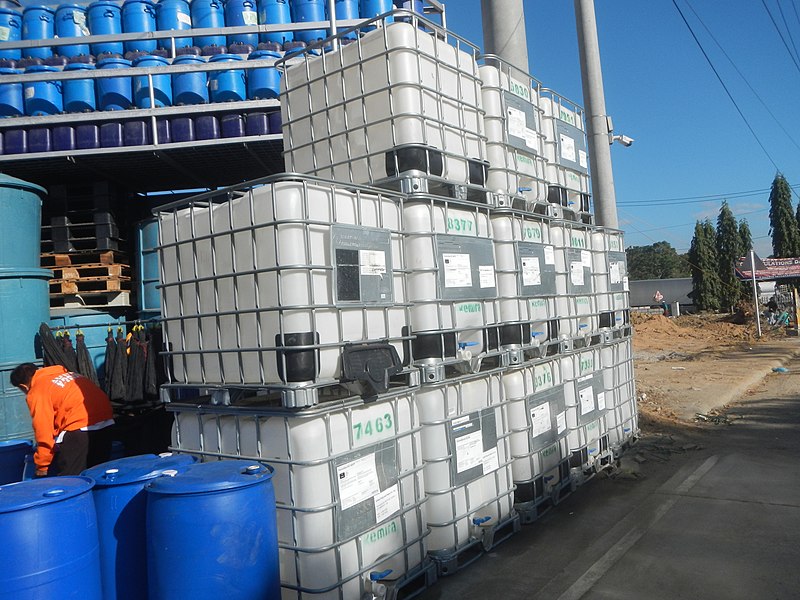In the world of industrial storage and transportation, Intermediate Bulk Containers (IBCs) stand out as versatile workhorses. These large, reusable containers are designed to safely store and transport fluids and bulk materials. Commonly known as IBC totes, these containers come in various shapes, sizes, and materials, offering a myriad of applications across industries. This comprehensive guide delves into the world of IBC totes, exploring their design, functionality, and the wide array of applications they serve.
Understanding IBC Totes
IBCs are standardized containers used for storing and transporting liquids, powders, and granular materials. The most common type of IBC is the IBC tote, which typically consists of a plastic or metal container surrounded by a metal cage. These totes are designed to be stackable, allowing for efficient storage and transportation in warehouses and shipping containers.
The standard capacity of an IBC tote ranges from 275 to 330 gallons (1,041 to 1,249 liters), although larger and smaller variants are also available to suit specific needs. They feature a built-in pallet base for easy handling using forklifts or pallet jacks, making them highly maneuverable within industrial settings.
Key Components of IBC Totes:
- Container: The inner container of an IBC tote is constructed from high-density polyethylene (HDPE) plastic or stainless steel, ensuring compatibility with a wide range of liquids and chemicals. HDPE containers are preferred for their lightweight and corrosion-resistant properties, while stainless steel containers offer enhanced durability and strength.
- Cage: The outer cage of an IBC tote provides structural support and protection for the inner container. Made from welded steel or galvanized steel, the cage prevents damage to the container during handling and transportation.
- Pallet Base: The base of an IBC tote is equipped with a pallet or skid, allowing for easy lifting and movement using forklifts or pallet jacks. The pallet base also ensures stability when the tote is stacked or stored in warehouses.
Applications of IBC Totes
The versatility of IBC totes makes them indispensable across a wide range of industries. From chemical manufacturing to food processing, IBC totes find applications in various sectors due to their durability, convenience, and cost-effectiveness. Here are some common applications of IBC totes:
- Chemical Storage and Transportation: IBC totes are widely used for storing and transporting chemicals, including acids, solvents, and detergents. Their robust construction and chemical-resistant materials make them ideal for handling hazardous substances safely.
- Food and Beverage Industry: In the food and beverage industry, IBC totes are employed to store and transport liquids such as juices, oils, and syrups. Food-grade IBC totes with FDA-approved materials ensure compliance with safety regulations and maintain product integrity.
- Agricultural Sector: Farmers and businesses utilize IBC totes to store and transport fertilizers, pesticides, and chemicals. The stackable design of IBC totes maximizes storage space in barns and warehouses, facilitating efficient inventory management.
- Water Storage and Rainwater Harvesting: IBC totes serve as cost-effective solutions for water storage and rainwater harvesting. Homeowners and businesses use IBC totes to collect and store rainwater for irrigation, landscaping, and emergency water supply.
- Waste Management and Recycling: IBC totes are repurposed for waste collection, recycling, and composting. Their large capacity and durable construction make them suitable for storing and transporting recyclable materials, such as plastic bottles, cardboard, and metal scraps.
- Construction and Manufacturing: Construction sites and manufacturing facilities employ IBC totes for storing and dispensing materials such as lubricants, adhesives, and concrete additives. The portable nature of IBC totes enables on-site delivery of bulk materials, reducing downtime and logistics costs.
- Pharmaceutical and Healthcare: In the pharmaceutical and healthcare sectors, IBC totes are used for storing and transporting bulk ingredients, pharmaceutical intermediates, and medical-grade liquids. Sterile and tamper-evident IBC totes ensure product safety and compliance with regulatory standards.
Advantages of Using IBC Totes
The widespread adoption of IBC totes can be attributed to their numerous advantages over traditional storage and transportation methods:
- Cost-Effectiveness: IBC totes offer a cost-effective solution for bulk storage and transportation, reducing packaging and handling costs compared to smaller containers.
- Space Efficiency: The stackable design of IBC totes maximizes storage space in warehouses and shipping containers, optimizing inventory management.
- Reusability: IBC totes are reusable containers that can withstand multiple filling cycles, transportation, and cleaning, reducing environmental impact and waste generation.
- Versatility: IBC totes accommodate a wide range of liquids, powders, and granular materials, making them suitable for diverse industry applications.
- Durability: Constructed from durable materials such as HDPE plastic and stainless steel, IBC totes are built to withstand harsh environmental conditions and rough handling.
- Compliance: Food-grade and pharmaceutical-grade IBC totes comply with industry regulations and safety standards, ensuring product integrity and consumer safety.
- Easy Handling: The pallet base of IBC totes facilitates easy handling using standard material handling equipment such as forklifts and pallet jacks, reducing manual labor and risk of injury.
Conclusion
In conclusion, IBC totes are indispensable tools for storing, transporting, and dispensing liquids and bulk materials across various industries. Their durable construction, versatility, and cost-effectiveness make them the preferred choice for businesses seeking efficient solutions for bulk handling needs. Whether used for chemical storage, food processing, agricultural applications, or waste management, IBC totes offer unparalleled convenience and reliability. By understanding the key components, applications, and advantages of IBC totes, businesses can harness their full potential to streamline operations and enhance productivity.
